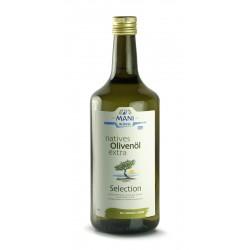Olive oil can not only be used in food, but also dripped into the ear. The Mediterranean pleasure and household remedy is said to relieve ear pain and excess earwax. But does the application of olive oil in the ear really deliver what it promises?
Does olive oil help with ear pain?
In the search for a natural plant-based ally in the fight against ear pain, olive oil proves to be a promising option. With its numerous healthy ingredients, olive oil can have both antibacterial and anti-inflammatory effects. By the way, it is advisable to use olive oil in the ear not only in acute cases, but also preventively. This is because the application of olive oil also serves to remove existing blockages and care for the mucous membranes.
Note: If you have a fever or persistent pain or a worsening of symptoms, you should immediately consult your trusted doctor.
Ear cleaning with oil
Blocked ears are uncomfortable and can even impair hearing. Various home remedies are available for naturally transporting earwax: in addition to salt water and steam, olive oil is often used in the ear.
Application
For an olive oil-based ear cleaning, all you need is high-quality olive oil, a dropper, and a handful of tissues. Here's how it works:
- First, heat the olive oil. Once it has reached body temperature, transfer it to the dropper.
- Tilt your head towards your shoulder (about 90 degrees). The goal is to make the ear canal to be treated vertical, so that the olive oil does not drip out during the subsequent procedure.
- Carefully drip the olive oil into the ear using the dropper. Fill the ear canal as completely as possible.
- Leave the olive oil in the ear for about three to five minutes to take effect. Keep the ear canal upright during this time.
- After the three minutes of exposure time, let the oil drip out.
- Finally, rinse the ear with lukewarm water. This step can also be skipped. In this case, the ear is dried gently and only from the outside using tissues, right after the olive oil has dripped out.
- Now repeat the entire procedure with the other ear.
How often to use olive oil in the ear?
In theory, olive oil can be dripped into the ear several times a day. However, since everyone reacts differently, it is important to develop an individual and needs-based treatment schedule. In most cases, semi-annual ear flushing is sufficient.
Side effects of olive oil in the ear
Very important: Olive oil should only be dripped into the ear if it has been ensured beforehand that the eardrum is intact. For this reason, it is essential to seek advice from an ENT doctor before the first self-treatment.
In addition, inserting olive oil into the ear can cause irritation in the ear canal. This is particularly true if the treatment is carried out too frequently or the olive oil has not been dripped out properly.
Note: Having the ears cleaned by an ENT doctor during a visit is the safest option.
Which olive oil for the ear?

High-quality organic olive oil is particularly suitable for dripping into the ear.
Only drip olive oil into the ear that you know has been obtained without chemical additives. For this reason, ideally only organic olive oil should be used. An official organic certification confirms that the highest value was placed on gentle and health-compatible production both during the cultivation of the olives and in the subsequent manufacturing process. It is also advisable to use (extra) virgin, cold-extracted olive oils. Since these are produced at temperatures of no more than 27 °C, the natural ingredients are extensively preserved and thus offer an excellent basis for optimal effectiveness.

















